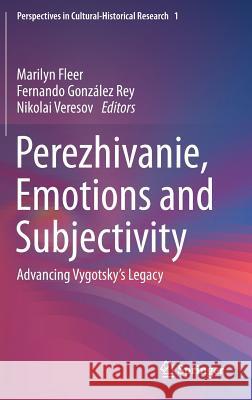Perezhivanie, Emotions and Subjectivity: Advancing Vygotsky's Legacy » książka



Perezhivanie, Emotions and Subjectivity: Advancing Vygotsky's Legacy
ISBN-13: 9789811045325 / Angielski / Twarda / 2017 / 265 str.
Perezhivanie, Emotions and Subjectivity: Advancing Vygotsky's Legacy
ISBN-13: 9789811045325 / Angielski / Twarda / 2017 / 265 str.
(netto: 766,76 VAT: 5%)
Najniższa cena z 30 dni: 693,97
ok. 22 dni roboczych.
Darmowa dostawa!
This book draws upon Vygotsky's idea of perezhivanie, emotions and imagination, and introduces the concepts of subjective sense and subjective configuration.
This book draws upon Vygotsky’s idea of perezhivanie, emotions and imagination, and introduces the concepts of subjective sense and subjective configuration. These concepts are crucial for explaining and understanding children’s development from a cultural-historical perspective. A book which theorises the relations between the social and the individual through a study of a child’s perezhivanie, which analyses emotions more holistically, and advances the concepts of subjective sense and subjective configuration, is much needed. This book examines the complexity of human development through a comprehensive elaboration of these concepts, allowing for new insights to be put forward. It doesn’t always follow the chronological order of Vygotsky’s publications, as many of his works remained in the family archives until the 1980s, when his Selected Works were first published in Russian. There has long been a need for a contemporary book on the scholarly treatment of perezhevanie, emotions, and subjectivity, and as such this book revisits dominant representations of these concepts and then puts forward new ways of conceptualising and using them in empirical research. The chapters cover a broad range of case studies where the concepts of perezhivanie, emotions and imagination and subjective sense and subjective configuration are used to give new empirical and theoretical insights into the study of human development.
1997-2026 DolnySlask.com Agencja Internetowa
KrainaKsiazek.PL - Księgarnia Internetowa









